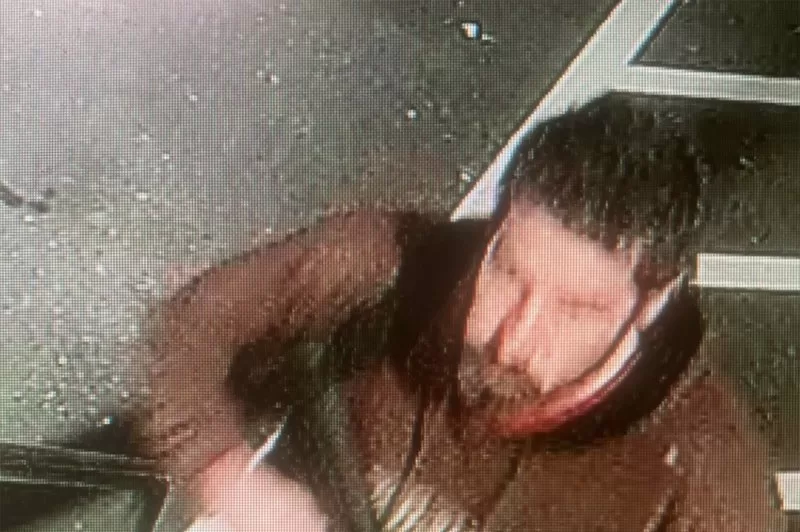Robert Card, 40, is seen in an image from surveillance footage during the mass shootings in Lewiston, Maine, on October 25. Local authorities had enough evidence to confiscate Card’s firearms before the rampage, investigators have found. File Photo courtesy of Maine State Police |
License PhotoMarch 16 (UPI) — Sheriff’s officials could have arrested Maine mass shooter Robert Card Jr. and confiscated his firearms six weeks before he killed 18 and injured 13 others in an October rampage, an independent commission has found.
The ad hoc independent commission appointed by Maine Gov. Janet Mills on Friday released an initial summary of its investigation and concluded the local police had probable cause to apply Maine’s yellow flag law to confiscate Card’s firearms and take him into protective custody.
Instead, Sagadahoc County Sheriff’s Dept. investigating officer Sgt. Aaron Skolfield only made “limited attempts” to meet with Card, didn’t look up prior complaint information against him, and didn’t contact the person whom Card allegedly assaulted, the commission said in its report.
Skolfield also failed to seek help from prosecutors or other law enforcement agencies regarding how to proceed with the matter, they found.
“Skolfield, responding to a report that Mr. Card was suffering from some sort of mental health crisis, had recently assaulted a friend, had threatened to shoot up the Saco Armory and harm others, and was in possession of numerous firearms, should have realized that he had probable cause to start the yellow flag process,” the authors wrote.
Card’s actions should have triggered enforcement of Maine’s yellow flag law, but the investigator instead relied on Card’s family members to remove his firearms.
“The decision to turn over the responsibility for removing Mr. Card’s firearms to Mr. Card’s family was an abdication of law enforcement’s responsibility,” the commissioners said. “This decision shifted what is and was a law enforcement responsibility onto civilians who have neither the legal authority to begin the yellow flag process nor any legal authority to seize weapons.”
Maine’s yellow flag law was enacted in 2019 and enables police to confiscate a person’s firearms and take that person into protective custody for further assessment by a medical practitioner.
The commissioners said the sheriff’s department didn’t follow up on the matter to make sure Card’s family had removed and secured his firearms.
Card, 40, was an Army reservist who killed 18 during a pair of mass shootings in a Lewiston bar and at a bowling alley on Oct. 25. Police found him dead from gunshot wound several days later.
An autopsy showed he had suffered a traumatic brain injury some time before the mass shootings.

